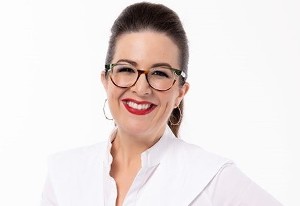The fee-for-service model
Former accountant Hannah McQueen, who founded financial coaching firm Enable.me, says financial advisers must be able to articulate their selling point.
Thursday, August 24th 2023, 6:06AM  2 Comments
2 Comments
by Andrea Malcolm

Speaking on a panel about how FAPs can raise consumer confidence at the Financial Services Council conference, McQueen asked advisers in the audience: Customers can work with anyone, why should they work with you?
Enable.me offers wrap-around financial strategy and coaching services. With 10 offices around New Zealand and more than 20 coaches and advisers, it aims to create behavioural change to create better outcomes for customers.
There is an initial consultation fee of $400 including GST and potential clients can choose from six programmes depending on their circumstances and goals. Programme fees range from $2500 to $12,000.
“It has always been a fee-based service because that is how you quantify time”, says McQueen, who says her accounting background probably helped in adopting that approach.
“When I entered the financial services industry 16 years ago, I was actually astounded that people could earn commission.
“We don’t work directly with product providers. Products are important but the strategy has to be right first. Sometimes in the industry, products are sold and it feels as though people are trying to shoehorn the strategy to support the product.
“I think with the FMA, disclosures and accountability we’re seeing less of that, because that erodes trust.”
She says Enable.me does have referral partners and may receive an introduction fee. It makes it clear on its website that when a client is referred to external financial advisers for specialist product advice such as mortgage and insurance, they may be eligible to receive commision from product providers and will disclose that.
“If you’ve already got partners, work with them to create transparency. Everyone relaxes. It’s almost as though the client wants to know what the hook is, and then when they know they can just relax into the meeting which is what you want.”
She says results analysis is vital. “If, for example, we say we would increase the savings rates of our client by 500%, get the mortgage free in 10 rather than 30 years, and create wealth at a rate ten times the current default; we are accountable to that every year.”
Each of Enable.me’s six coaching programmes has 47 steps, says McQueen. Coaches and advisers are assessed on programme efficacy, whether they follow the steps, and their outcomes are compared to the client's goals.
In response to panel discussion about financial advisers being reticent about disclosure she says, “As far as transparency goes we are naked at the top of the hill and stand by what we deliver, and because of that, by jingoes I’m going to charge for it and I’m proud to charge for it.”
McQueen says 95% of clients achieve their goals within a year, “but it’s not one-step and one transaction, it’s continual.”
| « Where the FMA is headed | Tough times ahead for NZ economy: Nikko economist » |
Special Offers
Comments from our readers
Sign In to add your comment
| Printable version | Email to a friend |




The key takeaway is that industry participants can no longer afford to be complacent, and must be able to respond to questions around 'value' from consumers... irrespective of how long they have been 'trusted clients'. This is particularly true in an environment where attractive term deposit rates have become the new industry competitor.
Recent discussions that have suggested that 'scale' is an issue are failing to miss the key ingredient of this relationship-centric industry, where the consumer simply wants to understand what it is that they are paying for.